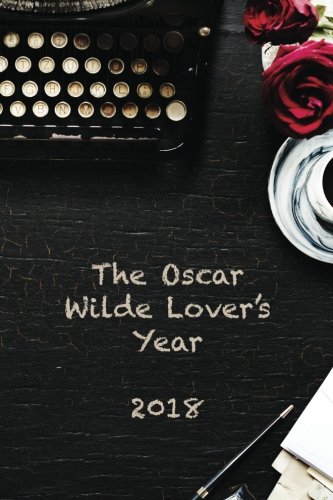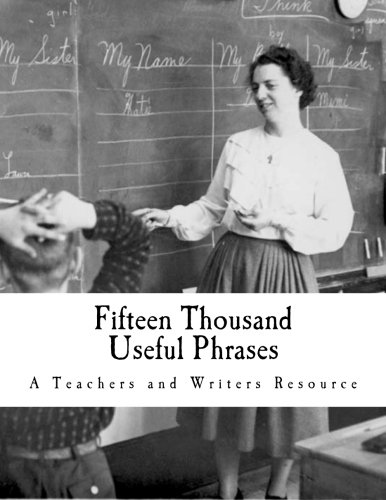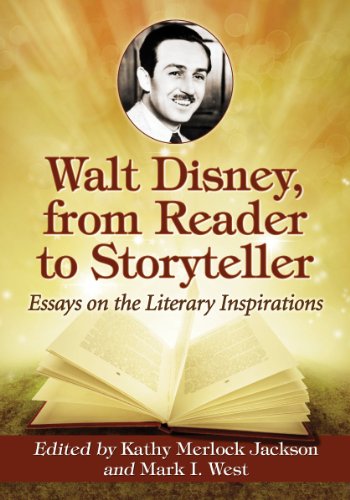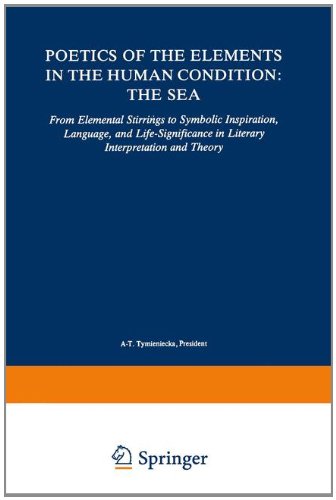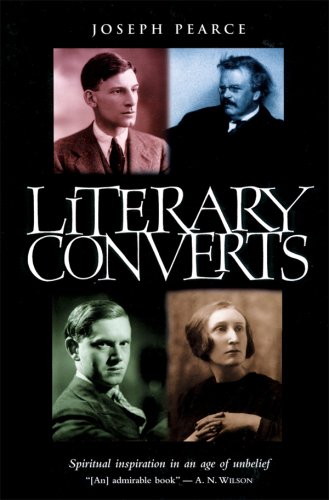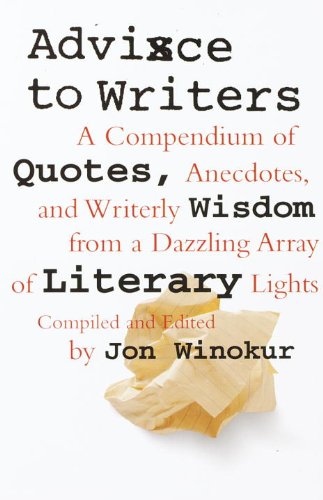
In Advice to Writers, Jon Winokur, author of the bestselling The Portable Curmudgeon, gathers the counsel of more than four hundred celebrated authors in a treasury on the world of writing. Here are literary lions on everything from the passive voice to promotion and publicity: James Baldwin on the practiced illusion of effortless prose, Isaac Asimov on the despotic tendencies of editors, John Cheever on the perils of drink, Ivan Turgenev on matrimony and the Muse. Here, too, are the secrets behind the sleight-of-hand practiced by artists from Aristotle to Rita Mae Brown. Sagacious, inspiring, and entertaining, Advice to Writers is an essential volume for the writer in every reader.”The only way to write is well and how you do it is your own damn business.” –A.J. Liebling
There are at least as many theories about writing as there are writers to expound them. In Advice to Writers Jon Winokur has collected some of the best bons mots ever penned on the literary life. In chapters covering such diverse topics as agents, publishers, critics, and process, Winokur lets writers speak for themselves–and often the advice is contradictory: “The professional guts a book through–in full knowledge that what he is doing is not very good. Not to work is to exhibit a failure of nerve,” John Gregory Dunne opines. “It would be wisest not to worry too much about the sterile periods. They ventilate the subject and instill into it the reality of daily life,” André Gide ripostes. There is advice on grammar and style, on dialogue, plot, and character, and also on topics such as occupational hazards and drink (surely a subset of those hazards). “Write first, drink later,” Patrick McGrath suggests. “To write you must be warm, fed, loved and sober.” (Poet and essayist Philip Larkin, on the other hand, advises, “Get stewed: Books are a load of crap.”)
Novices looking for practical information on the nuts and bolts of the business may not find it here. On the other hand, advice from the likes of David Remnick, F. Scott Fitzgerald, Toni Morrison, Maxwell Perkins, Isaac Asimov, Samuel Johnson, Calvin Trillin, P.D. James, and many, many other professional scribes can serve to inspire. At the very least, this potpourri of words to the wise will keep the incipient writer amused between drafts. –Alix Wilber
Product Features
- ISBN13: 9780679763413
- Condition: New
- Notes: BRAND NEW FROM PUBLISHER! 100% Satisfaction Guarantee. Tracking provided on most orders. Buy with Confidence! Millions of books sold!
